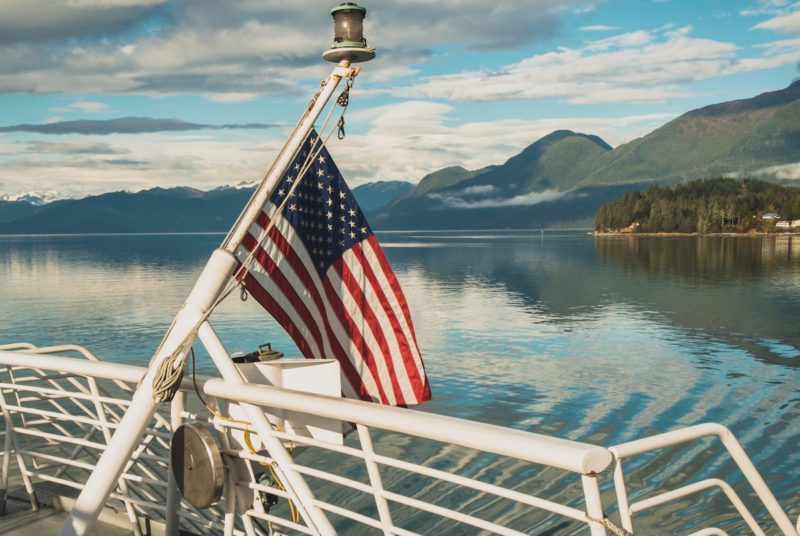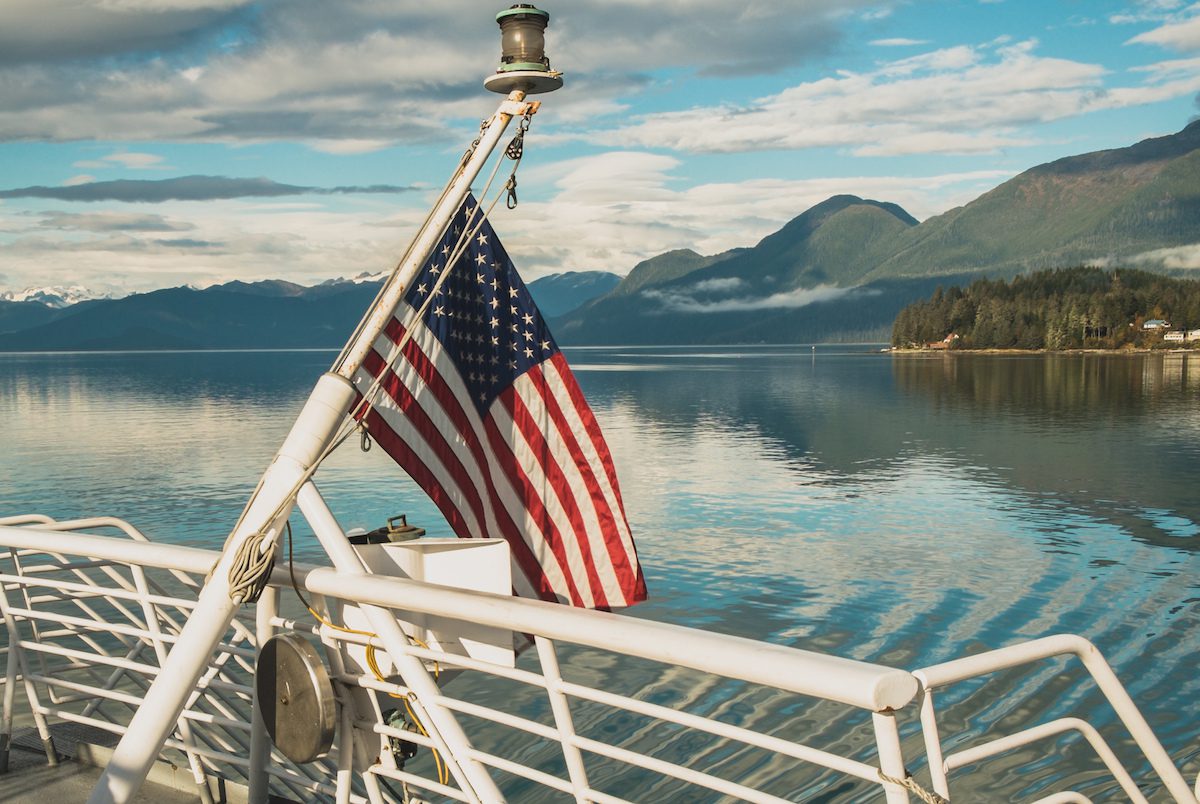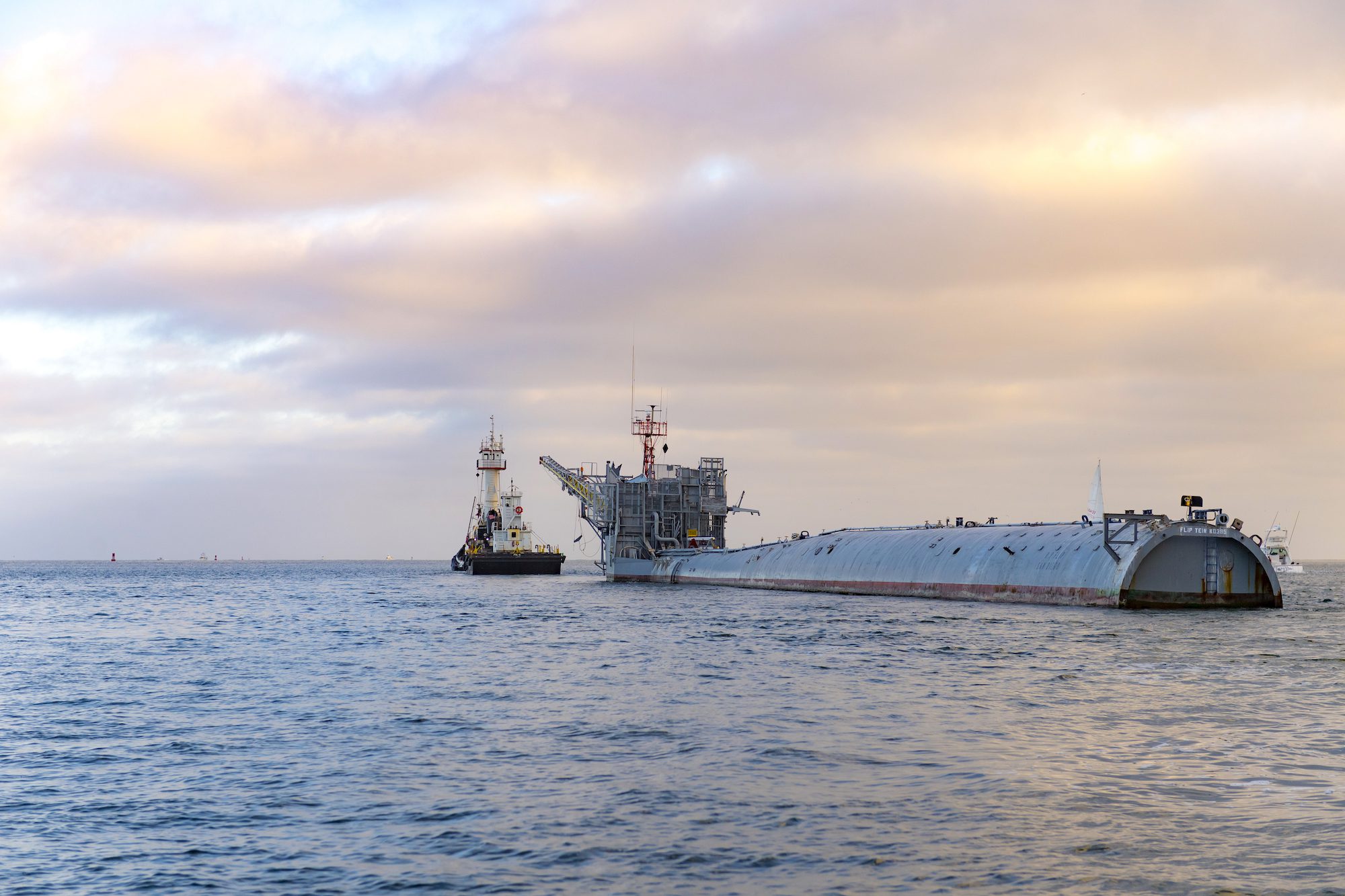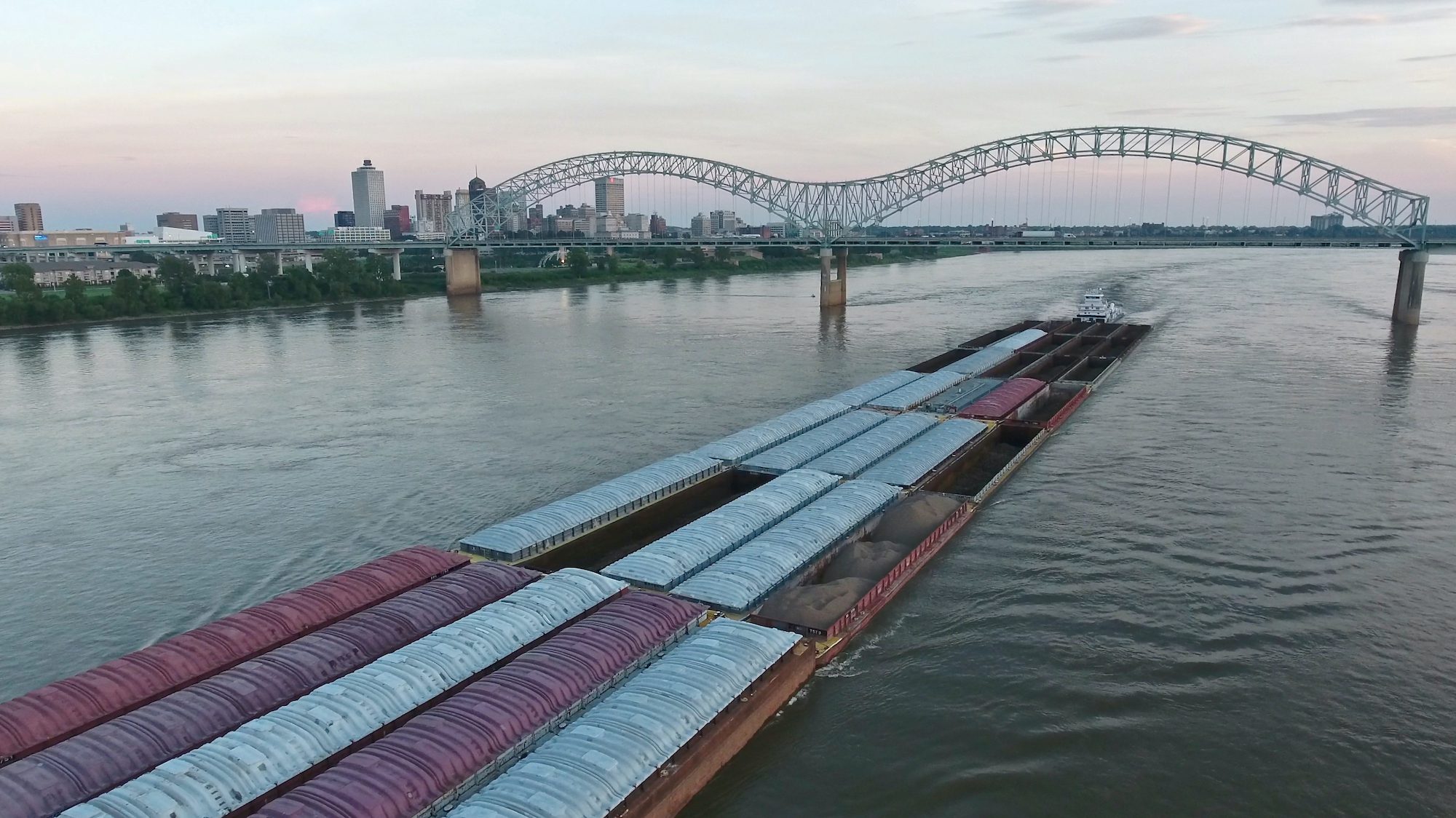
by Captains George Livingstone & Grant Livingstone – Another effort is under way in the Senate to repeal the Jones Act sponsored by Senator John McCain of Arizona. The law, originally enacted 97 years ago by Senator Wesley L. Jones of Washington State under section 27 of the Merchant Marine Act of 1920, focused on:
- Increased growth of American marine commerce
- Improving remedies to American mariners if injured on the job
- Providing for national security interests
Today the Jones Act refers to federal statute 46 USC section 883 which controls coastwise trade within the United States. Essentially the Act prohibits foreign flagged vessels from engaging in coastwise trade within the United States. In the context of the modern Jones Act, industry and government stress the following three components:
- Economic security
- National security
- Homeland security
Should the Jones Act be repealed? Much has been written pro and con on the subject. Senator McCain’s position is that it costs American tax payers millions each year, and that it is an antiquated and protectionist Act. It’s presented as undermining the American ideal of a free market and unfairly impacting American ship owners by forcing them to build American and hire American. From the American tax payers point of view it does cost millions per year. From the American ship owners point of view millions could be saved by building ships in China and hiring all Chinese crews to operate those ships. Critics also claim the Jones Act encourages the extension of a vessel’s life due to the high cost of domestic shipbuilding and repair. It may well be true in the container business and if so needs to be rectified. The U.S. flag tanker fleet, however, has some of the most modern ships in the world. The issue at hand remains, so let’s take a look.
Economic Security
As to free market ideals, Adam Smith, Scottish Author of Wealth of Nations, founder and great defender of the ‘free market’ economic principle contrarily believed in the concept of protecting a nation’s maritime interests. This goes against mistaken assumptions that he was a pure free market advocate.
In Wealth of Nations Smith states the following, ’There seem to be two cases, in which it will generally be advantageous to lay some burden upon foreign, for the encouragement of domestic industry…’ and ‘The act of navigation, therefore, very properly endeavors to give the sailors and shipping of Great Britain the monopoly of the trade of their own country, in some cases by absolute prohibitions, and in others, by heavy burdens upon the shipping of foreign countries.’
According to a recent Price Waterhouse study:
- The American Maritime industry sustains nearly 500,000 U.S. jobs
- The U.S. flag brown and blue water commercial fleet comprises 40,000+ vessels of all types
- Hundreds of billions in annual economic output is produced by the U.S. domestic maritime industry
- For every direct maritime job, 4-5 indirect jobs are created elsewhere
- More than 100 million passengers are transported annually on U.S. flag ferries
- 29 billion in annual wages is spent by maritime employees throughout the U.S.
National and Homeland Security
The National and Homeland security component is critical. The U.S. Coast Guard and Department of Homeland Security rely heavily on mariners to be the eyes and ears on our waterways. The possibility of maritime terrorism is real. Keeping American mariners manning U.S. flag ships, tugs/barges, supply, anchor handling vessels and American pilots on arriving and departing ships in our ports should not be discounted. Just one example, American pilots work closely with regional U.S. Coast Guard units around the country regarding safety and compliance of all foreign vessels calling in U.S. waters.
’The Jones Act fleet is subject to owners and operators adhering to U.S. Laws, including tax, immigration and labor laws. The Jones Act fleet contributes militarily useful ships and experienced crews to national defense sealift needs. U.S. merchant mariners are available to crew vessels that move goods for the military, supplying US military forces around the world with the goods and munitions needed to sustain their missions. This has been demonstrated in recent memory during Operations Enduring Freedom and Iraqi Freedom when US Flag commercial vessels transported 63% of all military cargoes.’ The Jones Act helps to sustain national defense through the domestic oceangoing shipbuilding industry. Domestic shipyards build and repair commercial and naval vessels capable of meeting United States Navy needs.’ *American Maritime Partnerships
A 2013 MARAD study backs up the above statements from American Maritime Partnerships
Even with the Jones Act intact, there is serious debate among experts that the United States merchant marine and shipbuilding complex would struggle in the event of a serious international conflict. Eliminating it would leave this country completely at the mercy of other nations stepping up to fill in the shipping gap.
International Cabotage law
New Zealand, the United Kingdom (U.K.), Argentina and Australia have or are embarking on the removal of ‘Jones Act’ type laws. Australia has recently repealed its laws and is now committed to a future without them. The result? In just a few years this Island nation totally dependent on maritime trade has only 15 nationally flagged vessels left in the entirety of its blue water commercial maritime fleet. It doesn’t end there, however, the Australian ship building and repair industry will be crippled in just a few short years. Where will future Harbor Masters, ship’s agents, tug captains, etc. come from? The Australian legislature and government have embarked on a path of no return as it will be nigh or impossible to come back from the place they have chosen to go. Would any nation like to think they are entirely dependent of the good will of other nations to secure and ensure homeland security?
The U.K., historically one of the world’s great maritime nations, repealed maritime cabotage laws. One consequence has been the introduction of foreign deckhands by some of the major U.K. ferry companies. Those deckhands make less than British national minimum hourly wage on ‘ships of shame’, harking back to the days when mariners were little more than indentured servants.
New Zealand long ago chose a complete free market maritime model, the results? Maritime Union of New Zealand’s General Secretary, Joe Fleetwood, stated in 2012 ’The approach for the last generation has been for Government to abdicate its responsibility to ensure standards in the maritime industry.’ There is general agreement that deregulation and ‘Flag of Convenience (FOC)’ shipping (removing cabotage laws) has put New Zealand’s environment at greater risk, there has been a rush to the bottom. In an increasingly fierce competitive shipping market, each new FOC is forced to promote itself by lowering standards on the ships under control of the FOC. This puts the environment at much greater risk of a shipping disaster.
Taking Action
In conclusion, it would seem a strong Jones Act is still an essential cornerstone of our nation’s economic, national and homeland security. The question to be answered by the United States Congress is straightforward. Is repealing the Jones Act good legislation? If repealed, real pressure as well as long term negative consequences would likely be placed on national security, the domestic economy and the environment, rippling back to the doors of Congress.
We would like to thank Capt. Michael Kelly (Marine Pilot at Port Authority of New South Wales) and Caitlin Sause (V.P. of Governmental Affairs at Sause Brothers Ocean Towing, Inc) for invaluable input to this article.

 Join The Club
Join The Club












